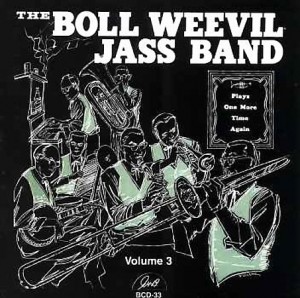What makes your head so red?
Tell me, what makes your head so red?
I been workin’ so long in the hot hot sun,
it’s a wonder that I ain’t dead.
My father used to sing that sometimes, sleeves rolled up, shirt open at the collar, head tilted back for the high notes. Just a snatch of a song, I always figured, part of something bigger, but that was the part he sang. So do I, now, when it sounds in my head, a short burst that makes me think of high heat and hard work in fields that I have rarely known.
 Today, in the throes of an infernal Pacific Northwest heat wave that has the thermometer rattling up toward 107, that red-baked head is on my mind again. Kind of blue, kind of hot, an oddly triumphal moan, mixed of resignation and endurance and somehow coming out on the sweet side of things: I ain‘t dead.
Today, in the throes of an infernal Pacific Northwest heat wave that has the thermometer rattling up toward 107, that red-baked head is on my mind again. Kind of blue, kind of hot, an oddly triumphal moan, mixed of resignation and endurance and somehow coming out on the sweet side of things: I ain‘t dead.
I come from a singing family. (And a whistling family, too, for that matter.)
My father tended toward old country-style things, like “Goodnight, Irene”:
“Sometimes I live in the country,
sometimes I live in town.
Sometimes I take a great notion
to jump into the river and drown.”
Or “Froggy Went a-Courtin'”:
“Without my uncle Rat’s consent,
I wouldn’t marry the president!”
On rare occasions he’d pull out his old battered guitar and strum. More often he’d just start to sing.
My mother had a pretty, Jo Stafford sort of voice, and her songs were more from the pop charts, often with a ’40s derivation, definitely pre-rock ‘n’ roll:
“Shrimp boats a-comin’, there’ll be dancin’ tonight!”
“It was fiesta down in Mexico, and so I stopped a while to see the show …”
“Your Daddy’s rich, and your Mama’s good-lookin’ …”
My father is 93 now, and my mother is 89, and they don’t sing much anymore: The old vocal cords just aren’t what they used to be. But for most of my life I remember singing as an utterly casual yet plainly important part of their lives. They had seven kids and not a lot of money and precious little time to themselves, but singing they could do. Singing was a pleasure, and to most of their children they passed it along. To me they even passed along a certain taste. I’m much more likely to start singing “Hey, good lookin’, whatcha got cookin’?” or “If I’m gonna marry it’s the butcher boy for me!” or even a rollicking old church tune than anything by the Beatles, much less Madonna or Cheryl Crow or Smashing Pumpkins.
Our town was surrounded by dairy and berry and bean farms and it rained a lot and in winter we got silver frosts with icicles hanging like troll-knives from the eaves. Summers were short and warm and grew things that got us out in the fields, rustling through strawberry bushes to earn clothes money for the coming school year. The music in the fields tended toward the tin beat of transistor radios and pop-40 tunes: “Call my baby lollipop, tell you why, his kiss is sweeter than an apple pie …”
People made their own music. That’s always been and always will be, despite the corporate push to turn us all into spectators for carefully controlled musical spectacles. (Karl Marx called religion the opiate of the masses; apparently he never saw MTV.) People made music at church. They made music on the porch or in the back yard. Kids gathered on sidewalks and chanted their proto-raps: “Made ya look, ya dirty crook, ya stole your mother’s pocketbook!” “Miss Suzy had a steamboat, the steamboat had a bell, Miss Suzy went to Heaven, the steamboat went to Hello operator, please give me number nine …”
Continue reading Boll weevil blues: Singing the heat wave away